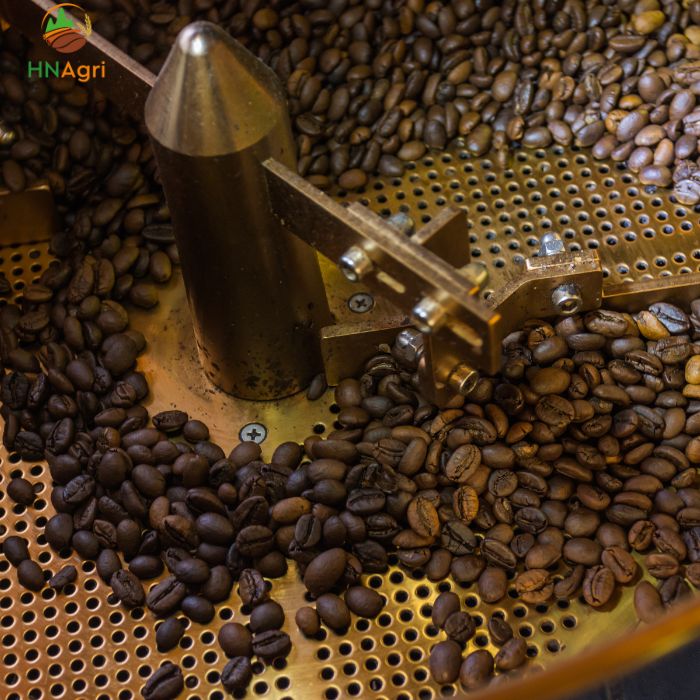
Vietnamese coffee export is increasingly popular and recognized globally for its unique and distinctive taste. As a leading producer of robusta coffee, Vietnam has great potential to capitalize on the growing demand for quality coffee, thereby boosting its export market. However, Vietnamese coffee export will require targeted efforts to improve production, processing and marketing.
Contents
1. Overview of the Vietnamese coffee export market
Vietnam is one of the world’s largest coffee-producing countries, with a wide range of high-quality and competitively priced coffees. The Vietnamese coffee export industry has developed rapidly in recent years and has become a major export sector of the country.
In 2020, Vietnam exported more than 1.6 million tons of coffee, bringing in more than 3.5 billion USD in revenue, up 1.2% in volume and down 0.9% in price compared to 2019. Which Robusta coffee accounts for more than 60% of total production and exports, and Arabica and other processed coffees are also produced and exported in Vietnam.
There are many different types of coffee in Vietnam and prices also vary depending on the type of coffee, location and size of the cafe. Below are the statistics of Viet Agri Wholesale – Vietnam’s leading wholesale coffee supplier about some popular coffee varieties and their current prices (prices may vary depending on location and time). ):
| Type | Price (USD/Ton) |
| Roasted ground coffee | 1,800 to 2,200 |
| Green coffee beans | 1,400 to 1,600 |
| Instant coffee | 2,400 to 2,800 |
| Clean coffee | 3,000 to 3,200 |
| Weasel coffee | 800 to 3,000 |
| Hard coffee | 2,400 to 2,600 |
Vietnam’s coffee industry is developing rapidly and has made significant strides in the process of international integration. Vietnamese coffee enterprises have been making efforts to increase production, improve product quality, improve production technology, develop ready-made coffee products and build their brand image.

2. The unique characteristics of Vietnamese coffee exports make it highly sought after
Coffee is one of the important industries of Vietnam, especially in the export sector. With its unique characteristics and great taste, Vietnamese coffee export has become a sought-after commodity in the international market.
2.1. The Unique Taste Of Vietnamese Coffee Exports
Vietnamese coffee export is known for its bold and distinct flavor, which is sought after by coffee connoisseurs. The unique climate in Vietnam, with its long rainy season and short dry season, further enhances the quality of coffee grown in the country. The beans are grown at high altitudes, giving them a unique flavor. Here are a few factors that lead to that unique taste.
- Traditional coffee roasting method: The Vietnamese method of roasting coffee has existed for a long time and has been passed down from generation to generation. This traditional method of roasting coffee can achieve a correct and uniform degree of ripening, give Vietnamese coffee exports a delicious taste. Even small details like the temperature and humidity of the coffee roaster affect the taste of the coffee.
-
The importance of milk: Milk is an important ingredient in Vietnamese coffee. It is added to coffee to create a unique flavor. The milk used in Vietnamese coffee is usually sweetened condensed milk, which gives the coffee a greasy and sweet taste. The combination of strong coffee and sweetened condensed milk creates the perfect balance of flavors.
- High quality coffee beans: To create a unique flavor for coffee, people often use high-quality coffee beans. High quality Vietnamese coffee export are hand-picked and carefully selected to ensure the best quality. These types of coffee beans can come from different regions of Vietnam, fromthe Northwest mountains to the Southern plains.
2.2. The unique cultivation method of Vietnamese coffee export
While many other places grow coffee on hills or in mountainous areas, in Vietnam, coffee is usually grown on flat land. This allows rainwater to flow through the soil, helping the Vietnamese coffee export to grow better. In addition, Vietnamese farmers also use the method of intercropping, ie growing coffee with other crops such as avocados, oranges, and especially rubber trees. Intercropping helps coffee plants grow better because it provides enough energy, vitamins and minerals for the plant. Besides, coffee intercropping also helps to protect the soil from erosion and enhances ecological diversity.
Vietnamese farmers also apply the method of growing coffee organically, without using chemical fertilizers or pesticides. Instead, they use natural fertilizers and special tobaccos to protect the coffee plants. As a result, Vietnamese coffee export has a unique taste and does not contain harmful chemicals, increasing the value of the product in the international market.

3. Challenges To Overcome In The Vietnamese Coffee Export Market And How To Solve It
The Vietnamese coffee export market has great potential, but the uneven quality of coffee beans is a big challenge. Farmers mix different beans or don’t process them properly, resulting in inconsistent flavours and aromas. Training on best practices and tighter quality control will help Vietnamese coffee exports overcome this challenge.
- Challenges on price competition for Vietnamese coffee exports
Coffee is a product that is widely produced and exported around the world. This causes significant price competition for the Vietnamese coffee export industry in Vietnam. Especially, when other countries like Brazil, Colombia, and Indonesia have lower production costs.
Coffee is a product that is widely produced and exported around the world. This causes significant price competition for the coffee export industry in Vietnam. Especially, when other countries like Brazil, Colombia, and Indonesia have lower production costs.
See more: Factors Affecting Vietnamese Coffee Price
- Challenges of climate change affecting Vietnamese coffee exports
Climate change is affecting coffee production worldwide, including in Vietnam. Unstable temperatures and climate can cause damage to the coffee plant and affect its production and quality.
Climate change is affecting coffee production worldwide, including Vietnamese coffee export. Unstable temperatures and climate can cause damage to the coffee plant and affect its production and quality.
- Challenges of quality standards and food safety affect Vietnamese coffee exports
Coffee is a major Vietnamese coffee export product, so ensuring quality and food safety is one of the most important factors to maintain reputation and enhance competitiveness in the international market economy.
Solution: Vietnamese coffee exporters need to comply with the quality and food safety standards of international organizations such as UTZ, Rainforest Alliance and 4C. They also need to invest in the production process and product quality control to ensure the best safety and quality for consumers.